Meteorological research and development
The Meteorology research unit carries out research and development in weather forecasting, climate analysis, atmospheric processes and air quality. We are about forty highly educated specialists with a broad competence background from meteorology and theoretical physics to mathematics and computer science. Together we increase knowledge of processes in the atmosphere which affects weather and air quality.
We work with observational data, meteorological analysis and model development for regional weather forecasting in the Nordic region, as well as with remote sensing, climate analysis and air quality at urban to global scales.
Our researchers have a broad spectrum of knowledge, from meteorology and theoretical physics to mathematics and computer science, and they have solid competence in numerical modelling. We have specialists in various observation techniques, including for radar and satellite data. Our collective knowledge contributes to increasing the use of remote sensing data both in model development and in various types of meteorological and climatological analyses.
In centre of our operations is the continuous development and improvement of numerical calculation systems. Our research and development increases the knowledge on which the computational models are based, refines the descriptions of the physical processes in the atmosphere and near the land surface, increases the resolution in the models and incorporates data from new data sources.

Find on this page
Our research areas give focus and in-depth knowledge
The six research areas focus around questions that bring great benefit to both SMHI's operations and society at large:
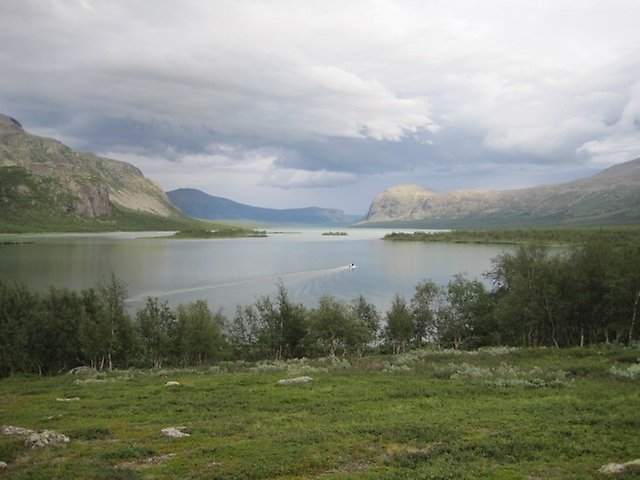
Atmospheric chemistry and air pollution models
Focus on atmospheric physical and chemical processes
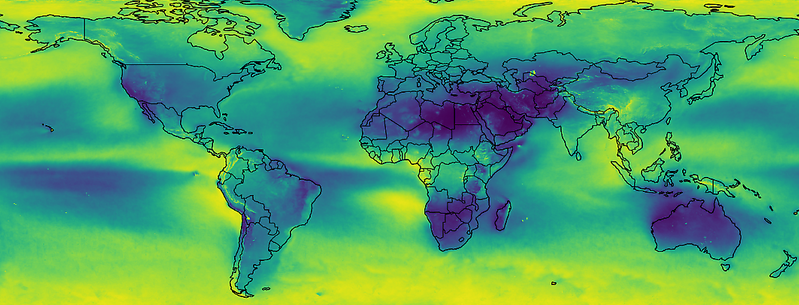
Climate monitoring and research using remote sensing
More climate knowledge from satellite and radar

Software methods for meteorological applications
For increasing amount of data

Nowcasting and remote sensing
New types of data to short-term forecasts
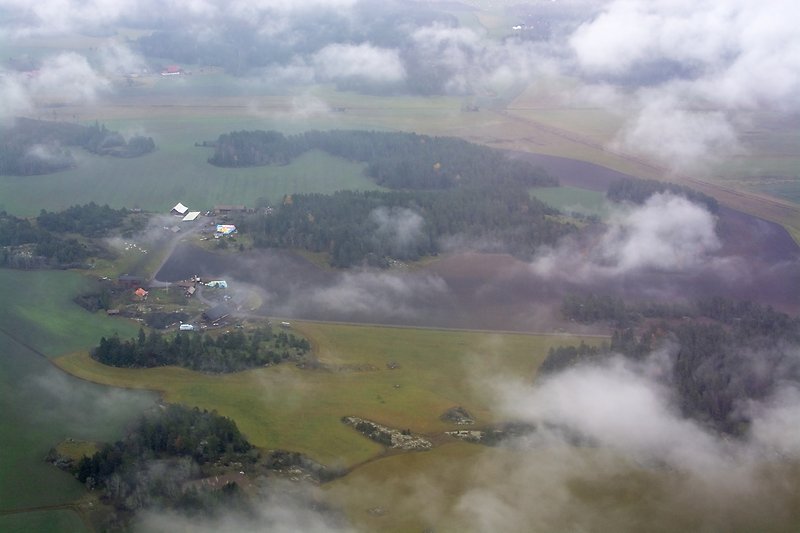
Atmospheric and surface processes
Research for more accurate forecasts
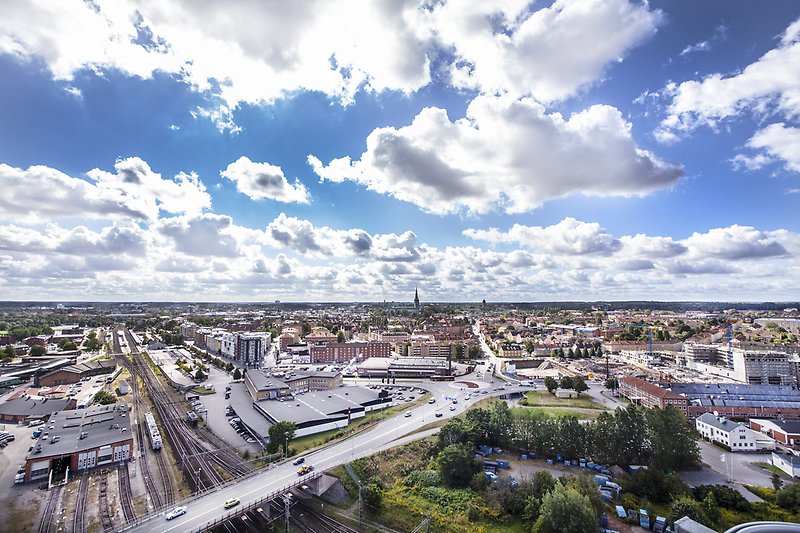
Urban climate and air quality
Heat and air quality in cities
CAMEO and CAMAERA – Two research projects developing Copernicus atmospheric service
The Copernicus Atmosphere Monitoring Service (CAMS) monitors the composition of the atmosphere. Now two European research projects will develop the service. SMHI is one of the partners.Green4Extremes – Green infrastructure for synergetic climate adaptation to extremes events
The Green4Extremes project will conduct an integrated assessment of how green infrastructure can provide synergistic effects that counteract both flooding and heat stress in cities while making cities more pleasant to live in.GlobAerBiom – Global biomass-burning aerosols and their aging processes: Insights from the modern era satellites
Biomass burning has major impacts on health, climate and society globally. Using satellite data, researchers will now investigate how aerosols from forest and agricultural fires are dispersed and aged in the atmosphere.CERISE – Research project to improve climate reanalysis and seasonal forecast systems
CERISE aims to enhance the quality of C3S climate reanalyses and seasonal forecast products.CARRA2 – A new generation Copernicus pan-Arctic regional climate reanalysis
In 2021 Copernicus Climate Change Service released the dataset CARRA1, with a 30-year reanalysis of the Arctic climate (1991-2021). The CARRA dataset is now updated monthly, providing new data with three or fewer months latency. The second phase of the project has started, which will extend the dataset to cover the per...
A important part of our daily work is the development of numerical computational models. We are engaged in research and development to continuously improve these systems through higher resolution, more advanced process descriptions and new data sources.
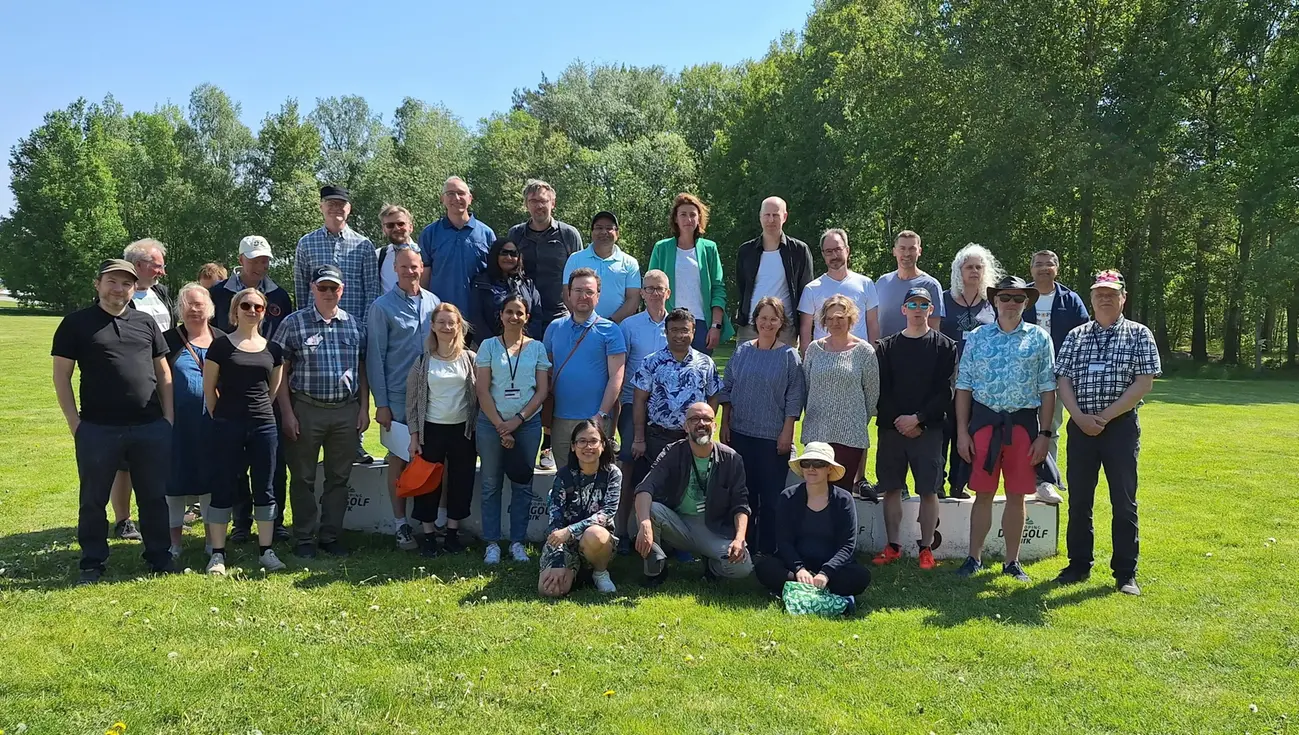.webp)
All of us at the meteorological research unit
The unit is led by Jorge Amorim, together with Jelena Bojarova and Cecilia Bennet.
We publish our research results in international peer-reviewed journals and in SMHI reports. The two most recent publications from SMHI's meteorological research are:
Interactions of urban heat islands and heat waves in Swedish cities under present and future climates
Fuxing Wang, Aitor Aldama Campino, Danijel Belušić, Jorge Humberto Amorim, Isabel Ribeiro, Lotten Wirehn, David Segersson, Ralf Doescher, Carlo Navarra, Tina-Simone Neset, Petter Lind
Biological data derived from European weather radars
Peter Desmet, Judy Shamoun-Baranes, Bart Kranstauber, Adriaan M. Dokter, Nadja Weisshaupt, Baptiste Schmid, Silke Bauer, Günther Haase, Bart Hoekstra, Pieter Huybrechts, Hidde Leijnse, Nicolas Noe, Stijn Van Hoey, Berend Wijers, Cecilia Nilsson
Co-development kick-off continues decade-long collaboration in West Africa
SMHI and AGRHYMET join forces in a new project aimed at co-developing a multi-model platform for operational forecasting of hydro-climatic extremes in West Africa. In October three days of efficient co-development kicked off this next episode of the long collaboration between SMHI and AGRHYMET.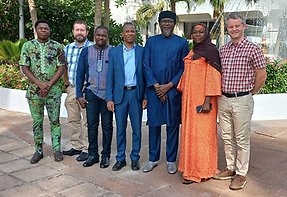
In Memory of Nils Gustafsson
Nils Gustafsson, former researcher within meteorology at SMHI, has peacefully passed away after a period of illness.
Better regional climate information in Africa
In the process of designing a climate program proposal for Sida (the Swedish International Development Cooperation Agency), SMHI has visited Maputo, Niamey and Douala. SMHI participated and held workshops with participants from several different African countries, social sectors and corresponding meteorological, climat...

